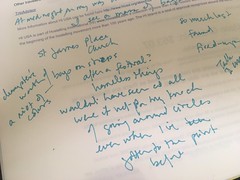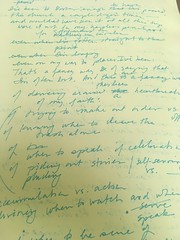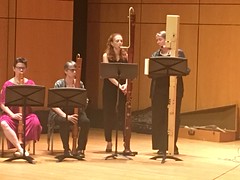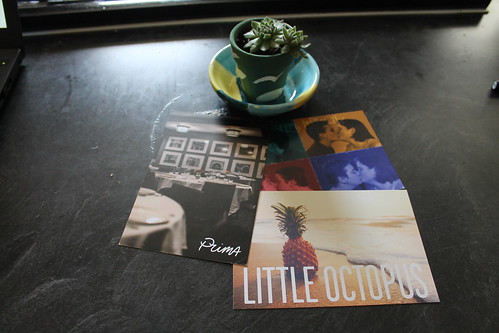Soft Science, Franny Choi, Alice James Books, 2019
Soft Science by Franny Choi is a collection of poetry focused on the effect of technology and technology-in-media on contemporary lives. One of the threads running through the book is the comparison—and sometimes blurring—of cyborg and women as shaped things molded by the society that uses them. The poems respond vehemently and sometimes violently to Othering in many forms; this is part of what makes the book so powerful and so important. The book is organized according to multiple (imagined) versions of the Turing Test, allowing the speaker (a cyborg? a woman?) to self-express and also to refute the shapes and molds imposed on them. It is representative and slightly a summing-up that the first line of the second poem reads “// this is a test to determine if you have consciousness”.
But I’m writing this more as a personal response than a review; hopefully the above gives you an idea of whether you’d like to look at the poems for yourself. I picked up the book based on the cover and the title; I want to read poetry about science. The first poem is presented in the form of a table, yes, columns, rows, headers, lines separating each entry and boxing them in. I bought the book because I was completely flummoxed about how to read this as a poem and because I really thought this is the kind of thing I should be reading, all the themes presented are important to me—and when I scanned the table of contents I saw a poem titled “Everyone Knows That Line and Ogres and Onions, but Nobody Asks the Beast Why Undressing Makes Her Cry” and how could I not read that?
As I progressed through the poems, I learned that Choi has a wonderful ear for alliteration, consonance, and rhyme, and that she uses full and partial rhymes and homonyms to propel her poems forward. It’s wonderful. I loved how over and over the poems take commonplace phrases and play with them, rewriting them, a word at a time, to build into something completely new, or simply casting a different light on the meaning of the phrase by giving it different context. Many many of the poems sing exactly how I love poems to sing.
But I still have no idea how to read a poem without lineation but with slashes, such as each of the Turing Test poems, such as this bit from the second poem:
// why do you insist on lying
I’m an open book / you can rifle through my pages / undress me anywhere / you can read / anything you want / this is how it happened / i was made far away / & born here / after all the plants died / after the earth was covered in white / i was born among the stars / i was born in a basement / i was born miles beneath the ocean / i am part machine / part starfish / part citrus / part girl / part poltergeist / i rage & all you see / is broken glass / a chair sliding toward the window / now what’s so hard to believe / about that
By the end of the book, I had given up trying to assign meaning to lineation in the poems that used it. I confess, that made them much easier to read, less probing and confusion, more emphasis on the words, but I keep coming back to the fact that lineation is the main difference between poetry and prose and if it means something the reader can’t understand, then what good is it? One could argue that “understanding” and “having an effect” are different things, and I would agree, but I would have liked something for the effort I exerted.
So, I am very glad to have read Choi’s work and will look for more of it, but, personally, I am even more confused about how to read a poem.






